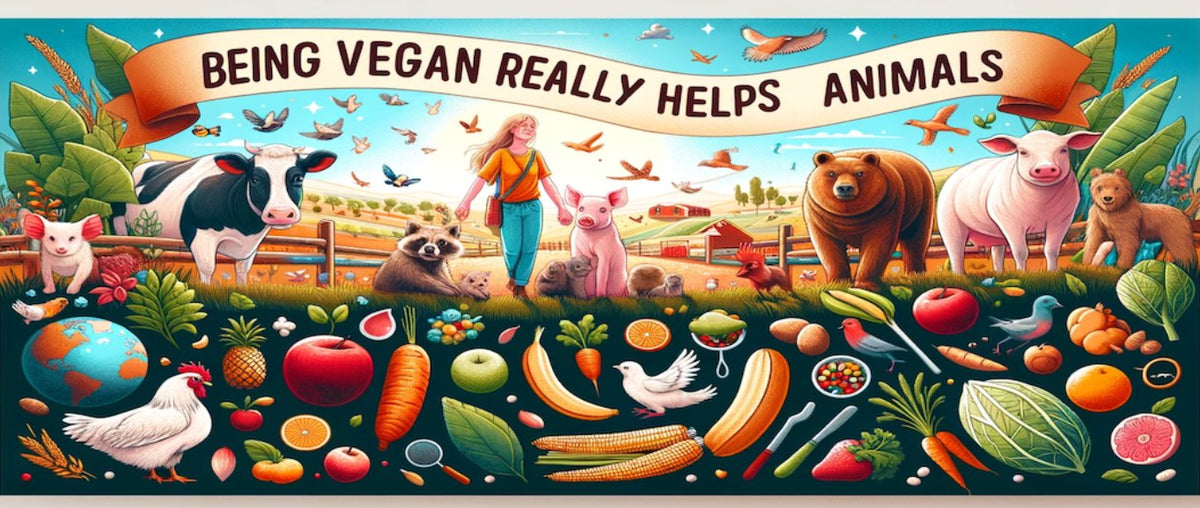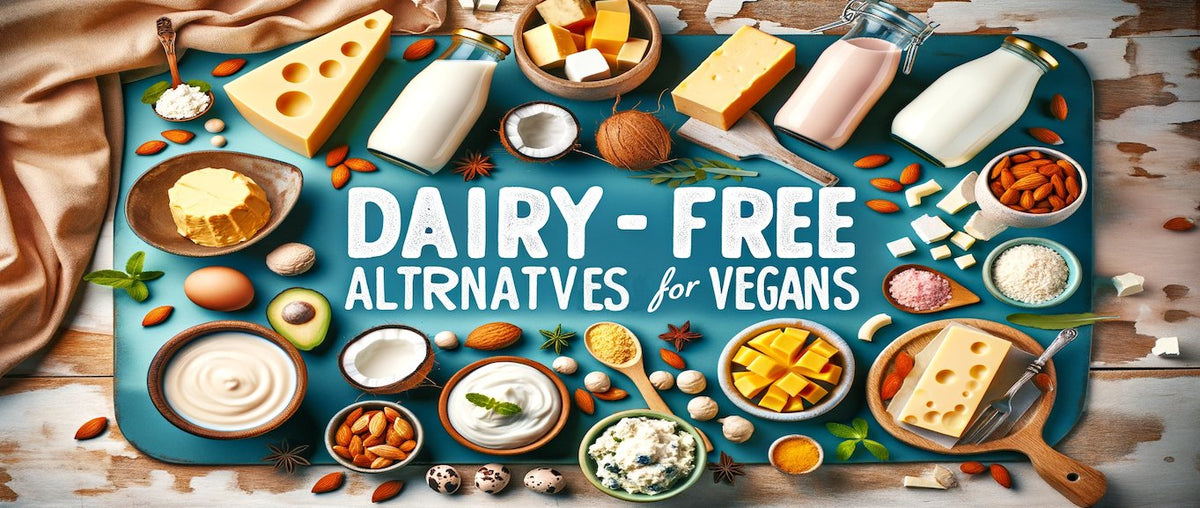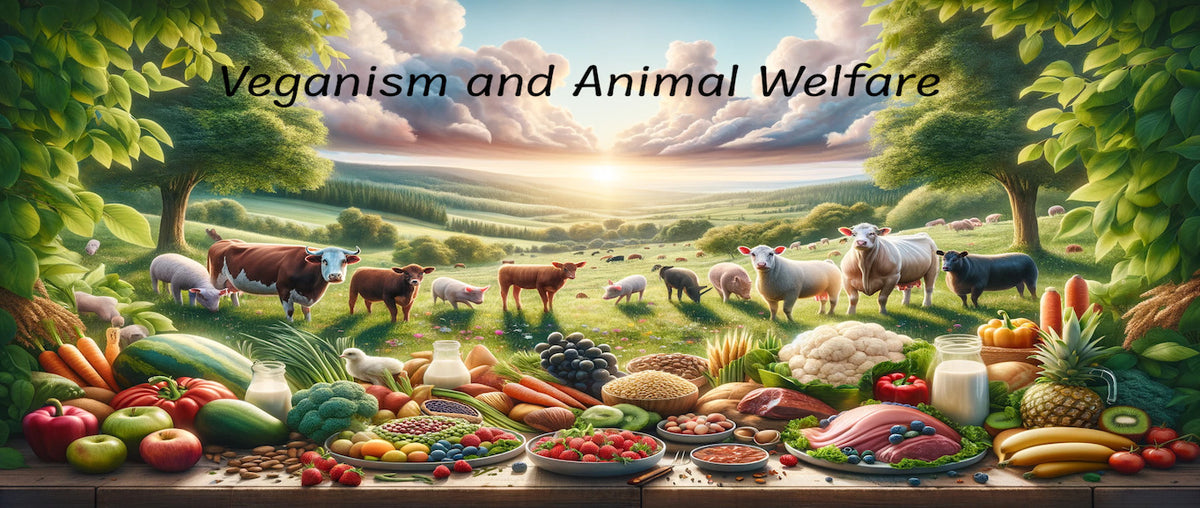Being Vegan Really Help Animals
Veganism goes beyond dietary choices.Being Vegan Really Help Animals It's a lifestyle that embodies the philosophy of minimizing harm to all sentient beings. At its core, veganism represents a profound respect for nonhuman animals, viewing them not as commodities but as living beings with intrinsic value. This philosophy extends to choices in food, clothing, entertainment, and other aspects of daily life, all rooted in a commitment to animal welfare.
Understanding the Vegan Philosophy
- Beyond Diet: Veganism is about making ethical choices that extend beyond what we eat.
- Ethical Considerations: It involves considering the impact of our actions on all sentient beings.
- Lifestyle Changes: Adopting veganism affects various aspects of life, from food to fashion.
Respecting Sentient Beings
- Sentience Recognition: Vegans recognize the ability of animals to feel pain and pleasure.
- Moral Responsibility: This recognition leads to a moral obligation to avoid causing unnecessary harm.
- Compassionate Choices: Vegans opt for alternatives that do not exploit or harm animals.
The Moral Imperative of Veganism
Veganism is deeply rooted in ethics. It challenges the conventional view of animals as mere resources and proposes a moral imperative to treat them with respect and compassion.
Speciesism: An Ethical Concern
- Defining Speciesism: It’s the assumption of human superiority leading to the exploitation of animals.
- Ethical Implications: Speciesism is akin to other forms of discrimination like racism or sexism.
- Vegan Response: Vegans oppose speciesism by rejecting animal exploitation in all forms.
Ethical Theories Supporting Veganism
- Diverse Theories: From utilitarianism to rights-based approaches, various ethical theories support veganism.
- Common Ground: They all converge on the principle of considering the interests of all sentient beings.
- Moral Consistency: Veganism offers a consistent ethical stance against exploitation and cruelty.

Environmental Impact of Animal Agriculture
The environmental footprint of animal agriculture is a compelling argument for the adoption of Vegan products and diets. This industry significantly contributes to global environmental issues, making veganism a crucial part of the solution.
The Devastating Effects of Animal Farming
- Greenhouse Gas Emissions: Animal agriculture is a major contributor to greenhouse gases, more so than the entire transportation sector.
- Land and Water Use: It requires large amounts of land and water, contributing to deforestation and water scarcity.
- Biodiversity Loss: Intensive farming practices lead to habitat destruction, affecting biodiversity and ecosystem balance.
Veganism as an Environmental Solution
- Reduced Carbon Footprint: Shifting to plant based foods and vegan food products like vegan cheese and vegan butter can significantly lower one's carbon footprint.
- Sustainable Resource Use: plant based diets are more efficient in terms of land and water use, supporting sustainable resource management.
- Biodiversity Protection: By reducing the demand for animal products, veganism helps protect natural habitats and species.
Veganism for Health: Beyond Diet
The health benefits of a vegan diet are increasingly recognized by health professionals and nutritional experts, making plant based products a wise choice for health-conscious consumers.
Nutritional Benefits of a Vegan Diet
- Heart Health: A diet rich in plant based foods, like Cashew Butter and vegan mayo, can improve heart health by being naturally cholesterol free.
- Weight Management: Vegan diets are effective for weight management due to their lower calorie density and higher fiber content.
- Disease Prevention: plant based diets have been linked to lower risks of various diseases, including certain types of cancer, type 2 diabetes, and hypertension.
Addressing Nutritional Concerns
- Protein Sources: vegan food products offer ample protein sources, such as legumes, tofu, and quinoa.
- Vitamin and Mineral Intake: Carefully planned vegan diets can meet all nutritional needs, often supplemented with fortified foods or supplements.
- Whole Foods Focus: Emphasizing whole, minimally processed plant based foods ensures a nutrient-rich diet.
Environmental Impact of Animal Agriculture
The environmental repercussions of animal agriculture are profound and multifaceted. As the world gravitates towards more sustainable practices, understanding the environmental costs of our food choices, particularly those involving animal products, becomes crucial.
The Role of Animal Farming in Climate Change
- Greenhouse Gas Emissions: Animal agriculture is a significant contributor to greenhouse gases, notably methane and nitrous oxide.
- Resource Intensiveness: It requires vast amounts of land, water, and energy, leading to deforestation, water depletion, and loss of biodiversity.
- Sustainable Alternatives: Shifting to plant based foods and plant based products like vegan cheese and vegan butter can drastically reduce one's carbon footprint.
Deforestation and Resource Depletion
- Land Use: Large tracts of forest are cleared for grazing and feed production, disrupting ecosystems.
- Water Usage: Animal farming is water-intensive, contributing to water scarcity.
- plant based Solutions: Incorporating plant based foods like cashew butter and cholesterol-free foods into our diet is a more sustainable choice.

Veganism for Health: A Comprehensive Approach
Embracing veganism isn't just an ethical or environmental choice; it's a path to improved health. A well-planned vegan diet, rich in vegan products and plant based foods, offers numerous health benefits.
Nutritional Adequacy of a Vegan Diet
- Balanced Diet: A vegan diet, including plant based cheese, vegan mayo, and fat-free butter, provides all necessary nutrients.
- Health Benefits: Studies show that a vegan diet can lead to lower risks of heart disease, hypertension, type 2 diabetes, and certain cancers.
- Diverse Options: The market is replete with vegan food products that cater to nutritional needs without compromising taste or variety.
The Benefits of Cholesterol-Free and Low-Fat Foods
- Heart Health: Cholesterol free foods and low-fat options like plant based products contribute to better cardiovascular health.
- Weight Management: A diet rich in plant based foods tends to be lower in calories and fats, aiding in weight management.
- Varied Choices: From vegan shop offerings to homemade recipes, there are numerous ways to enjoy delicious, healthful vegan meals.
Animal Ethics and Vegan Advocacy
The ethical treatment of animals is at the heart of veganism. Organizations like Animal Aid play a pivotal role in highlighting the ethical implications of animal farming and advocating for vegan alternatives.
The Cruelty Behind Animal Farming
- Factory Farming: Involves intensive breeding, confinement, and often inhumane conditions for animals.
- Ethical Implications: Raises questions about the moral justification of using animals for food.
- Vegan Alternatives: Vegan cheese, vegan butter, and other plant based products offer cruelty-free alternatives.
Animal Aid's Role in Promoting Veganism
- Campaigns: Animal Aid campaigns against animal cruelty in farming, testing, and entertainment industries.
- Public Awareness: Through education and advocacy, they increase awareness about the benefits of veganism for animal welfare.
- Supporting Transition: Providing resources and guidance for adopting a vegan lifestyle, including a variety of vegan products like cashew butter and vegan mayo.
Also Read
Veganism in Practice: Lifestyle Changes
Adopting a vegan lifestyle involves making conscious choices in various aspects of life, from diet to clothing and entertainment.
Adopting a Vegan Diet
- Dietary Shift: Transitioning to a diet consisting of vegan food products, plant based foods, and cholesterol-free foods.
- Cooking and Eating Out: Exploring vegan recipes and enjoying vegan options at restaurants.
- Shopping: Frequenting a vegan shop for groceries and exploring online sources for diverse vegan options.
Vegan Alternatives in Daily Life
- Clothing and Accessories: Opting for materials that do not involve animal products.
- Entertainment: Choosing activities and events that do not exploit animals.
- Personal Care: Selecting cruelty-free and vegan cosmetics and toiletries.
Overcoming Challenges and Myths about Veganism
Transitioning to veganism can be met with challenges and misconceptions. Addressing these effectively is key to a successful transition.
Debunking Common Misconceptions
- Protein Myths: plant based sources like legumes, nuts, and tofu provide ample protein.
- Expense Concerns: Veganism can be economical, especially when focusing on whole foods and seasonal produce.
- Taste Misconceptions: A wide range of delicious vegan products, including Vegan Cheese and vegan butter , debunk the myth that vegan food lacks flavor.
Nutritional Guidance for New Vegans
- Balanced Diet: Ensuring a diet rich in various nutrients available in plant based foods.
- Supplements: Considering supplements like B12 for a well-rounded vegan diet.
- Resources: Utilizing online platforms and communities for support and information.
Eggs Aren’t Harmless: The Truth About Egg Production
The production of eggs is often overlooked in discussions about animal cruelty. However, the reality behind egg production is far from harmless.
The Reality of Egg Farms
- Cruel Practices: Hens are often kept in cramped conditions, leading to physical and psychological stress.
- Life Cycle of Laying Hens: Their natural behaviors are suppressed, and they face a grim fate once their productivity declines.
- Vegan Alternatives: Opting for plant based foods like vegan mayo made from cashew butter can help avoid supporting such cruel practices.
Ethical Implications
- Moral Consideration: The ethical implications of egg production challenge the notion that eggs are a harmless product.
- Veganism as a Solution: By choosing vegan food products, consumers can avoid contributing to the cruelty inherent in the egg industry.

Vegan Diets Save the Lives of Animals
Adopting a vegan diet has a direct impact on reducing animal exploitation and saving lives. This is a fundamental reason many choose veganism.
Quantifying the Impact
- Reduction in Demand: Every individual choosing veganism contributes to decreased demand for animal products.
- Lives Saved: By opting for plant based cheese , vegan butter , and other Vegan products, vegans directly reduce the number of animals bred for consumption.
Broader Implications
- Societal Shift: As more people adopt Veganism, the cumulative effect can lead to significant changes in animal agriculture practices.
- Encouraging Change: Each purchase of plant based foods and cholesterol-free foods sends a message in support of animal welfare.
Identifying Characteristic Profiles of People with Different Vegetarian Motives
The reasons people choose vegetarianism or veganism are varied and complex, reflecting a range of ethical, environmental, and health concerns.
Diverse Motivations
- Ethical Vegans: Motivated by animal welfare concerns, choosing products like fat-free butter and plant based cheese to avoid animal exploitation.
- Health-Conscious Vegetarians: Focused on the health benefits of a plant based diet, often including vegan food products in their meals.
- Environmental Advocates: Driven by the desire to reduce environmental impact, favoring sustainable plant based products.
Understanding the Spectrum
- Personal Beliefs: The decision to adopt veganism often aligns with personal ethical, health, or environmental beliefs.
- Cultural Influences: Cultural and societal factors also play a role in shaping individual choices towards veganism.
Conclusion: Embracing Veganism for a Compassionate Future
Adopting veganism is a powerful way to make a positive impact on animal welfare, the environment, and personal health. By choosing vegan cheese, vegan butter, and other plant based foods, individuals can contribute to a more compassionate, sustainable, and health-conscious world.
If you are a vegan, looking to dine something vegan in your city, check out our list of vegan restaurants in India.










